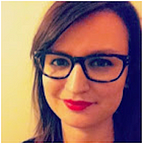We Can’t Rely On Mental Health Apps…Yet
There’s a real need for easy-to-access treatment options, but for now, experts are skeptical
 Last summer, Chanel Omari, 34, couldn’t fit therapy in her schedule. She was frequently out of town for work, while also working on a podcast, and it was seemingly impossible to make time for regular check-ins. But she was diagnosed with mild depression and anxiety and needed help managing her mental health, so she downloaded two apps: one called Calm, which would teach her meditation, and another called 7 Cups, which would connect her with mental health professionals or trained “listeners” (volunteers who are not necessarily certified therapists) who could offer support over text messages.
Last summer, Chanel Omari, 34, couldn’t fit therapy in her schedule. She was frequently out of town for work, while also working on a podcast, and it was seemingly impossible to make time for regular check-ins. But she was diagnosed with mild depression and anxiety and needed help managing her mental health, so she downloaded two apps: one called Calm, which would teach her meditation, and another called 7 Cups, which would connect her with mental health professionals or trained “listeners” (volunteers who are not necessarily certified therapists) who could offer support over text messages.
“At first I felt better,” she says. “It was the beginning of a new journey and it seemed like a new approach. Most importantly it was convenient and cost-effective. Therapy was costing me an arm and a leg.”
But soon the app approach would leave her confused. Omari downloaded an app to track her daily emotions, and it suggested she had a mood disorder after she used it for a week. “I was like, okay, if that’s what it is, I am going to embrace it and work on it,” she says. But when she shared her new “diagnosis” with a psychiatrist and therapist, they both found it to be untrue after…
